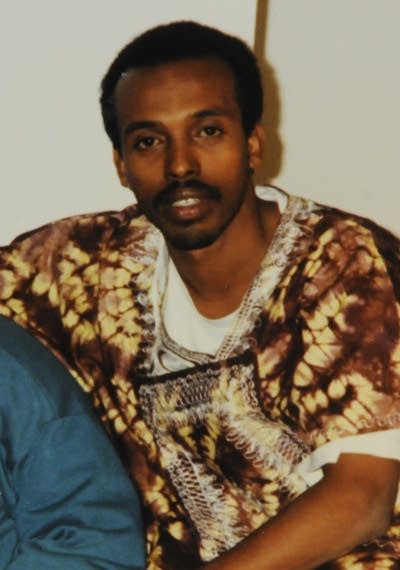Jury gets case in Minn. al-Shabab trial
Go Deeper.
Create an account or log in to save stories.
Like this?
Thanks for liking this story! We have added it to a list of your favorite stories.

Mahamud Said Omar may not have been the one who indoctrinated several young Twin Cities men to fight for a terrorist group, but the former janitor from Minneapolis helped steer them into a deadly pipeline to Somalia, according to a federal prosecutor in closing arguments in Omar's terrorism trial Wednesday.
Assistant U.S. Attorney John Docherty said Omar, 46, helped the extremist group al-Shabab with logistical and financial assistance. He said after a Minneapolis man carried out a suicide bombing in 2008, Omar helped move more men who were to be used as cannon fodder by the terrorist group.
"What you're seeing is an al-Shabab 'team leader' at work," said Docherty, referring to the job title Omar gave himself when speaking to FBI agents last year.
But Omar's attorneys defended the 5-foot-4 Omar, saying the government's case against him rested on three unreliable witnesses. Andrew Birrell noted his client's stature — figuratively and literally — at one point calling Omar "a frightened little man."
Turn Up Your Support
MPR News helps you turn down the noise and build shared understanding. Turn up your support for this public resource and keep trusted journalism accessible to all.
"Look at Mr. Omar," Birrell told the jury. "You can barely see him over the table. He is one of the little people in the world."
Birrell noted that three early Twin Cities recruits who left Minneapolis in 2007 — Salah Osman Ahmed, Kamal Said Hassan, and Abdifatah Yusuf Isse — lied to the FBI about traveling to Somalia to fight for al-Shabab. They have all pleaded guilty to terror-related charges and are expecting to receive lower sentences in exchange for their testimony against Omar.
"This case demonstrates why our government should not make deals with terrorists," Birrell said. "They make the whole case unreliable."
On the witness stand, the totality of the three men's testimony places Omar at an al-Shabab safe house in Somalia, where he provided money for two AK-47 rifles for the group, according to some of the cooperating witnesses. The men also expected Omar to join up with them at an al-Shabab training camp, even though the defendant never showed up.
Prosecutors also allege that after Omar returned from Somalia in April 2008, he accelerated efforts to send more fighters to al-Shabab. After the suicide bombing was carried out by Shirwa Ahmed in 2008, Omar's reaction was "to shove more men into the pipeline," Docherty charged.
"Let's be very clear when we hear loose talk about, 'This was never directed at America,'" Docherty said.
He said Omar helped organize the travels of young American men by taking them to the airport in August 2008, knowing they would join al-Shabab once they arrived in Somalia. And later that fall, Omar took five additional young men to a Minneapolis travel agency to help secure their tickets, Docherty said.
Omar is charged with five terror-related counts and could face life in prison if convicted. The jury began deliberating the case Wednesday afternoon.
The government's evidence consists of statements Omar made to the FBI, wire-tapped phone conversations, witness testimony and business records, such as phone bills and money transfers.
Omar's attorneys decided not to call any defense witnesses after the government rested its case. They have said Omar is innocent, and wasn't capable of running anything.
His attorney, Birrell, noted in his closing argument that the witnesses who traveled to fight for al-Shabab did not name Omar as one of the lead organizers who radicalized the young men. Omar never went to a single secret meeting in 2007, Birrell said. Nor did he raise money for the group, preach "jihad," participate in an ambush or even touch a gun.
Birrell warned the jurors about the witness testimony from the three former recruits for al-Shabab. He noted that departed for Somalia with the intent to kill Ethiopian soldiers.
"A man who will kill will lie," Birrell said.
• Follow Laura Yuen on Twitter: http://www.twitter.com/laura_yuen




